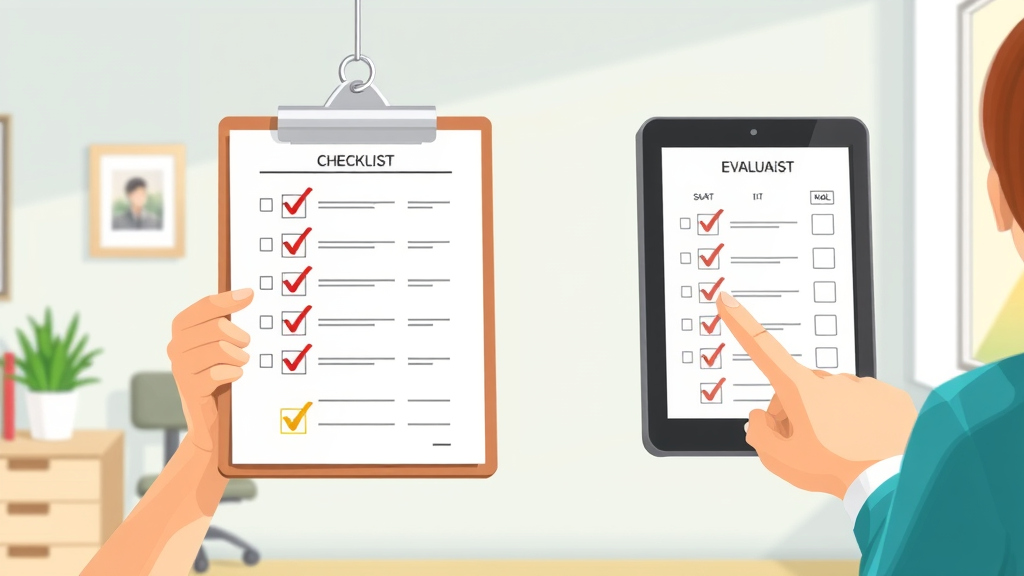Did you know: Businesses using advanced phone systems experience up to 60% faster customer response times and double their scalability compared to those still using legacy phone lines? Unlocking the power of small business mobile solutions isn't just about better calls—it's about fueling unprecedented growth, productivity, and client satisfaction in a mobile-first era.

Discover Why Small Business Mobile Solutions Are Revolutionizing Business Phone Systems
In today’s fast-evolving business environment, small business mobile solutions are transforming the landscape of business phone systems. Modern solutions go far beyond traditional phone lines, seamlessly integrating voice, messaging, video, and mobile apps into one centralized platform. With features like automatic call routing, unified communications, and mobile device integration, small businesses now have the tools to compete head-to-head with larger enterprises on both agility and professionalism.
The need for a reliable business phone system has never been more urgent—studies reveal that companies deploying advanced small business phone systems consistently see higher employee productivity and lower missed calls. This means improved client satisfaction and quicker conversions. By leveraging a solution tailored for small businesses, you’re not only meeting current demands but also future-proofing your business growth for tomorrow.
Startling Facts: The Real Impact of Small Business Phone Solutions on Growth
Small business mobile solutions have led to a paradigm shift. For example, research indicates that businesses using VoIP phone systems cut their monthly phone service costs by up to 40% compared to those using legacy desk phones. Add in unified communication platforms, and you’ll find that businesses are experiencing 50% fewer missed connections —an essential factor in competitive industries. The introduction of mobile device compatibility ensures ongoing business continuity, especially for remote and hybrid teams, keeping everyone connected and agile no matter where they are.
Small businesses adopting advanced business phone systems not only slash operational costs but see measurable spikes in scalability and client engagement. With real-time mobile integration, teams collaborate efficiently, respond quickly to leads, and never miss a crucial customer call. These systems have become indispensable in creating a trusted, accessible customer experience around the clock, setting the stage for long-term growth.
The potential for growth is real: unified communication and sophisticated business phone systems can increase client retention rates by up to 27%, according to industry surveys. Small businesses leveraging these solutions are better positioned to adapt to market changes and stay competitive against larger rivals.
How Phone Systems for Small Businesses Drive Competitive Advantage
By adopting business phone systems designed for agility and mobile use, small businesses are gaining a major competitive edge. Unified communications allow employees to handle customer queries seamlessly across devices—be it a VoIP phone, IP phone, or desk phone—increasing both flexibility and responsiveness. Modern phone systems offer mobile app integration, enabling staff to operate from anywhere without sacrificing professionalism or client service quality.
Advanced call routing ensures the right calls reach the right team member, reducing friction and preventing missed sales opportunities. Moreover, essential features like instant access to CRM data, automated call forwarding, and synchronized phone numbers guarantee continuity and transparency, both internally and externally. The result? Enhanced brand reputation, stronger customer loyalty, and robust, scalable business growth.
In a world where speed and efficiency matter, top-tier phone service is no longer optional for small businesses. Adopting the best small business mobile solutions translates directly into more business, faster decision-making, and the ability to stay ahead—even in crowded markets.
What Sets Top Small Business Mobile Solutions Apart?
- Unified Communications: Streamline voice, video, chat, and conferencing into a single business phone system interface.
- Call Routing: Direct incoming calls efficiently to ensure no lead or support request is ever missed.
- Mobile Device Integration: Empower your staff to work on the go with mobile apps that maintain all functionality and security.

Unified Communications: Transforming Small Business Phone Service
Unified communications have emerged as the core of effective business phone service for small businesses. By consolidating phone, messaging, email, and video into one platform, your team can access every mode of communication from a single dashboard. This removes barriers between remote and in-office staff, resulting in a truly synchronized workflow. Such integration boosts not only internal teamwork but also customer response times and satisfaction ratings.
Imagine your sales team receiving calls on their mobile device while accessing customer records through CRM integration in real-time, wherever they are. Unified communications reduce friction, maximize productivity, and make sure your business never misses a beat. For growing companies, investing in a robust unified business phone system solution isn’t just smart—it’s critical for outperforming the competition.
Unified platforms also enable smooth transitions between devices (from desk phone to mobile app or VoIP phone) and real-time chats alongside calls. For the modern workforce—and your demanding customers—this level of flexibility is non-negotiable if you want your small business to succeed at scale.
Essential Features Every Small Business Phone System Must Have
Choosing the right small business phone system means focusing on critical features that drive efficiency and growth. At the top of the list is smart call routing—a lifeline for managing inbound queries and ensuring no customer is left waiting. Businesses should also prioritize mobile device support and advanced CRM integration, which empower staff to deliver excellent service whether in the office or on the road. Seamless switching between IP phones, desk phones, and mobile apps keeps teams agile and productive.
Cloud-based phone systems that provide easy-to-manage phone numbers, secure messaging, and detailed analytics also offer a substantial competitive advantage. Automated attendants, team conferencing, and integrations with favorite productivity platforms further set leading small business phone systems apart, delivering an all-in-one business communication solution for dynamic workplaces.
For scalability, advanced features like voicemail-to-email, call recording, and mobile app notifications are must-haves. These ensure that customer interactions are not only tracked but also actionable—critical in a customer-first market where response time and personalization drive loyalty.
The Best Phone System Options for Small Business Growth
Comparing VoIP Phone, IP Phone, and Desk Phone Solutions
Small businesses evaluating phone system options typically compare VoIP phones , IP phones , and traditional desk phones . VoIP (Voice over Internet Protocol) solutions run through your internet connection, delivering advanced features and flexibility at a lower cost. IP phones are a modern hybrid, offering internet-based calling with hardware that resembles traditional handsets, making transitions easy for teams familiar with older systems.
Desk phones, while reliable, often lack the agility and integration offered by VoIP or IP solutions. Many small businesses are replacing desk phones with cloud-based or mobile-compatible phone systems, allowing for enhanced call routing, quick scaling, and seamless integration with mobile devices and business apps.
Ultimately, cloud-based business phone systems and VoIP phone system options are preferred by growth-focused companies for their superior scalability, cost savings, and suite of advanced features designed for the modern workplace.
| Feature | VoIP Phone System | Traditional Desk Phones | IP Phone |
|---|---|---|---|
| Cost | Low monthly fees, little hardware | High upfront hardware & maintenance | Moderate—mix of hardware & VoIP |
| Scalability | Easy to add/remove users remotely | Physical install needed for expansion | Add users via network; moderate flexibility |
| Advanced Features | Yes (call routing, mobile app, CRM integration) | Limited (basic calling/voicemail) | Some advanced support (depends on system & service provider) |
| Mobile Device Integration | Excellent | Poor | Varies |
| Business Continuity | Cloud-based redundancy | Risk of downtime during outages | Moderate—depends on network setup |

Choosing the Right Business Phone Service Provider for Small Businesses
Selecting a reliable business phone service provider is crucial. The best providers cater to small businesses with scalable pricing, outstanding customer support, and a robust uptime guarantee. Prioritize vendors offering transparent contracts, clearly outlined service fees, and customizable plans. Review their customer service responsiveness, and ask about CRM integrations, call quality, and support for remote and mobile device users.
The ideal small business phone system provider should offer managed onboarding, continuous training resources, and tech support. Look for providers who routinely upgrade features, ensuring your business leverages the latest advances in unified communications. Reading reviews, checking references, and utilizing free trials can clarify whether a provider aligns with your current and future business needs.
It’s important to choose a service that understands small business challenges—offering support that extends beyond the installation date, ensuring you have access to all advanced features designed to foster growth and resilience in any market condition.
Advanced Features of Modern Business Phone Systems
- CRM Integration: Connect your phone system directly to your customer relationship management tools for instant access to call history and customer profiles.
- Call Routing: Automated call handling and smart routing to ensure efficient handling of all incoming and outgoing calls.
- Mobile Device Support: Use mobile devices as fully functional business phones via secure apps and cloud connection.
CRM Integration: Boosting Efficiency with Small Business Phone System
CRM integration with your small business phone system is a total game changer. Agents can view customer profiles, recent interactions, and past orders while taking a business call. This integration streamlines processes, boosts first-contact resolution rates, and ensures your entire team is on the same page with every customer touchpoint. Effective CRM integrations don’t just save time—they improve accuracy, personalize communications, and dramatically increase the speed of service delivery.
With seamless integration, tracking customer journeys from first contact to post-sale follow-up is effortless. This not only improves the customer experience but also provides valuable insights for decision-makers on performance and bottlenecks. In fast-growth environments, CRM integration within a business phone system becomes a foundation for scaling exceptional service without sacrificing personalization.
For small businesses, integrating CRM with unified business phone service eliminates data silos, enabling more strategic outreach, more informed upselling, and a more cohesive customer experience, both online and offline.
Call Routing and Automated Phone Service for Enhanced Customer Experience
Advanced call routing and automated phone service features are vital for ensuring each customer is directed quickly and efficiently to the best available representative. Intelligent automation can direct calls based on time of day, caller input, or assigned teams, reducing hold times and frustration. When paired with responsive mobile device integration, call routing ensures you’re always reachable, even if you step outside the office.
Businesses adopting these technologies report marked improvements in resolution rates and customer satisfaction. By using a unified system for phone service and call routing, you empower your staff and customers alike—nobody is ever “on hold” for too long, and complex calls are routed to the teams most equipped to handle them. This creates a seamless, professional impression that keeps clients returning.
Automated attendants, customizable greetings, and voicemail transcription further simplify the calling experience for both your team and your clients. These advanced features are especially invaluable in supporting a remote or after-hours workforce, ensuring every call is tracked and no inquiry slips through the cracks.

How Small Business Phone Systems Improve Customer Experience
Seamless Communication: Unified Communications and Business Continuity
The essence of exceptional customer service is seamless communication . Unified communications within small business phone systems ensure that every touchpoint—whether a call, video chat, or team message—flows smoothly and is automatically logged. This kind of integration protects business continuity by keeping everyone aligned, reducing redundancies, and guaranteeing critical data is always at hand when you need it most.
Mobile device integration guarantees key team members never miss important client calls, even when working remotely. This flexibility is essential for businesses facing unpredictable challenges: power outages, local disasters, or simply a shift toward hybrid work. With these systems in place, clients enjoy higher responsiveness and reliability—attributes that quickly set a business apart.
In this always-on, mobile-driven world, unified communications are the thread that ties together every aspect of customer engagement and support. For small businesses seeking loyalty and referrals, there’s simply no substitute for this level of connected, responsive service.
Case Study: A Small Business Success Story With Mobile Solutions
One local retailer struggled for years with outdated desk phones and inconsistent phone service, leading to frustrated customers and missed opportunities. By switching to a VoIP-based business phone system, the company enabled seamless call routing, CRM integration, and real-time call analytics across every employee’s mobile device. Within months, they witnessed a dramatic reduction in missed calls and a 60% improvement in response times .
"Since implementing advanced business phone systems, our response times improved by 60%." – Laura Smith, Small Business Owner
The retailer’s staff now handles customer queries and orders from any location, using business mobile solutions that unify communications and enable full access to critical information in real-time. This transformation didn’t just resolve operational challenges—it powered faster revenue growth and elevated their brand reputation in an ultra-competitive local market.
For similar small businesses, adopting next-gen business phone systems is proving to be the shortcut to scalable success and customer delight.
Mobile Device Integration and Unified Communication: Why They Matter for Small Businesses
Benefits of Mobile Friendly Business Phone Systems for Small Businesses
Mobile device integration unlocks game-changing flexibility for modern small businesses. Employees can make and answer calls, check voicemails, and even join video meetings using mobile apps designed for their unified business phone system. This dramatically increases workforce agility, shortens response times, and ensures critical communications are never missed—even when your team is spread across town or traveling for work.
With the lines between desk phones and mobile devices blurred, your business can create seamless workflows and deliver quicker resolutions. Mobile-friendly phone systems also keep costs in check, reducing the need for expensive hardware while enabling remote work at scale. Unified communications ensure all communications are logged in real-time, through one platform—simplifying compliance, accountability, and process improvement for all staff.
When small businesses integrate their phone system with mobile device capabilities, research shows a 20-35% increase in employee productivity—a measurable competitive advantage for any business looking to grow rapidly in a mobile-first marketplace.

How Unified Communication Enhances Team Collaboration and Mobile Work
Unified communication breaks down the barriers between desk phones, mobile apps, and core business systems, giving teams new tools to tackle challenges together. It allows for high-quality video meetings, instant messaging, and collaborative document sharing all in one interface—accessible through desktop or mobile device. The reduction in missed messages, dual entries, and lost time enables teams to focus on growth, not troubleshooting outdated tech.
The result? Employees can stay connected and coordinated whether they’re in the office or on-site with a client. Supervisors can monitor call logs, customer follow-ups, and project updates remotely. This level of collaboration is critical for remote and hybrid teams—and, increasingly, a must-have for supporting client relationships and delivering on customer expectations in real-time.
Empowered by unified communication, businesses become more resilient, proactive, and adaptable. Mobile solutions make these capabilities accessible and affordable even for the smallest companies, closing the gap with larger competitors and ensuring sustainable growth.
People Also Ask: Small Business Mobile Solutions FAQs
What is the best phone system for a small business?
The best phone system for a small business is often a VoIP-based unified communications solution offering advanced features, scalability, and mobile integration—all critical advantages for growth-focused companies.
What is the best phone service for a small business?
The best phone service for a small business is one that provides reliable business phone service, low costs, and excellent customer support, such as cloud-based phone systems tailored for small businesses.
How much does a small business phone system cost?
Small business phone system costs can range from $20 to $50 per user per month, depending on advanced features, service provider, and the number of lines required.
What is the best softphone for a small business?
The best softphone for small business depends on integration capabilities, security, and ease of use, with top choices including RingCentral, 8x8, and Nextiva for unified communications.
Key Considerations When Selecting Small Business Mobile Solutions
- Easy CRM integration for sales and service visibility
- Mobile app and multi-device support
- Smart call routing and auto-attendant features
- Secure cloud storage and business continuity
- Transparent pricing from your service provider
- Reliable technical support and onboarding
- Flexible scalability for growth

How to Evaluate Phone Service Providers for Your Small Business
Assess potential phone service providers by evaluating plan scalability, feature sets, pricing transparency, and customer support credentials. Look for providers with deep experience in serving small businesses and those who offer personalized onboarding and training. Check the quality and uptime guarantees for business phone systems, and review security protocols, especially if your company handles sensitive client information. Popular options should also include responsive tech support and hands-on migration assistance to avoid disruption.
Ask about contract terms, support for advanced features such as mobile app access and CRM integration, and request case studies relating to your industry. Comparing these details enables you to select the most cost-effective and business-ready small business mobile solutions that match your specific growth objectives.
Request customer references, test-drive trial accounts, and review the fine print on service and cancellation fees to avoid hidden costs that could derail your investment.
Scaling With Business Phone Systems: When to Upgrade
Businesses should consider upgrading their phone systems when expanding into new markets, adding more remote staff, or outgrowing the basic feature set of legacy desk phones. If call volumes rise, team collaboration suffers, or integration with mobile and CRM platforms becomes critical, it’s time to deploy a next-generation business phone system. Leading solutions allow you to scale quickly by adding or removing licenses, connecting remote workers, and unlocking new advanced features as needed.
Upgrading your small business mobile solutions ensures you remain agile, competitive, and capable of delivering top-tier service even as your customer base grows. The right investment in a scalable system translates into improved workflow, superior customer experience, and the confidence to pursue new growth opportunities.
Pricing and ROI: Investing in the Right Phone System for Small Business
| Provider | Monthly Cost Per User | Key Features | Average Annual Savings | ROI Timeline |
|---|---|---|---|---|
| RingCentral | $29–$49 | Unified communications, CRM integration, mobile app | Up to $1200 vs. desk phones | 6–9 months |
| Nextiva | $25–$45 | VoIP phone, analytics, advanced call routing | Up to $1000 vs. legacy service | 6–12 months |
| 8x8 | $24–$50 | VoIP, mobile integration, advanced features | Up to $1,100 | 6–10 months |
Hidden Costs: Understanding Service Provider Fees and Contracts
While small business mobile solutions typically offer strong ROI, it’s important to understand hidden fees such as overage charges, service upgrades, long-term contracts, and hardware costs. Thoroughly examine contract terms to avoid early termination penalties and unexpected fees, and clarify which features are included as standard versus those billed as add-ons.
Seek providers that offer month-to-month flexibility, transparent pricing, and simple upgrade paths as your needs evolve. Understanding the complete pricing structure up front prevents surprises and ensures a better long-term return on your business phone system investment.

Maximizing Savings With VoIP Phone and Cloud-Based Phone Systems
Switching to VoIP phone and cloud-based phone systems slashes IT maintenance, reduces hardware expenses, and dramatically cuts traditional phone line costs. With subscription-based models, small businesses avoid large upfront payments and pay only for active users, controlling operational overhead. Cloud-based platforms also provide free mobile apps, unlimited extension dialing, and regular feature updates—all bundled into predictable monthly fees.
Businesses migrating from desk phones to VoIP-based service have reported up to 70% cost reductions and a reduction in downtime thanks to cloud redundancy. Long-term, these savings can be redirected into marketing, talent, or technology—driving even greater growth and resilience for your small business.
Top Business Phone Systems Rated for 2024
- RingCentral : Known for its strong unified communications, robust mobile app, and reliable service provider support.
- 8x8 : Great for businesses needing international calling and advanced call routing features.
- Nextiva : Excels in CRM integration and offers excellent customer support.
- Grasshopper : Ideal for startups seeking affordable, simple mobile business solutions.
- Vonage Business : Flexible and packed with advanced features for scaling companies.
Pros and Cons of Leading Phone System Providers
RingCentral: Pros —Intuitive UI, advanced analytics, seamless mobile device support; Cons —Costs may be higher for small teams. 8x8: Pros —International reach, robust call routing; Cons —Learning curve for new users. Nextiva: Pros —Deep CRM integration, strong customer service; Cons —Custom pricing can be complex. Grasshopper: Pros —Affordable, user-friendly; Cons —Limited advanced features. Vonage: Pros —Flexible and scalable; Cons —May require paid add-ons for key features.
"Our transition to a cloud-based phone system cut downtime and improved mobility for our team." – Marco Johnson, Tech Startup Founder
Ultimately, weigh pros, cons, and customer feedback to pick the right fit for your small business mobile solutions.
Most leading providers offer free demos and no-risk trials, giving you a hands-on look at user interfaces, feature depth, and mobile app integration before making a final decision.
How to Set Up Your Small Business Mobile Solution: Quick Steps
- Assess Your Needs: Determine the number of users, required features, and existing hardware.
- Choose a Provider: Compare top business phone service vendors for small businesses.
- Plan Implementation: Select hardware, define business numbers, and establish call routing rules.
- Onboard Your Team: Train employees on new features and mobile apps.
- Integrate with Tools: Connect your phone system to CRM, email, or project management software.
- Go Live: Transition in phases for minimal disruption and provide customer support channels for feedback.
Tips for Easy Transition and Employee Adoption
To ensure a smooth adoption, communicate the benefits of mobile solutions to your team and provide clear training on new tools, such as mobile apps and CRM integrations. Establish “champions” within your staff to answer peer questions and test-drive features. Roll out updates in manageable phases, collect feedback, and adjust processes as needed.
Emphasize security best practices and highlight productivity gains, from faster response times to improved customer service. The success of small business mobile solutions depends largely on enthusiastic, well-informed users.
Monitor usage analytics post-launch, and schedule regular check-ins with your provider for ongoing optimization and to access new advanced features that can foster continued growth.

Best Practices for Managing Security and Compliance With Mobile Phone Systems
Protecting Sensitive Data in a Mobile Business Phone Service Environment
Data security is paramount for small businesses adopting mobile business phone solutions. Select systems with end-to-end encryption, secure cloud backups, and role-based permissions for users. Regular software updates and compliance with industry standards like GDPR or HIPAA ensure that client information is always protected, even on employee mobile devices.
Train staff to recognize phishing and avoid insecure networks when accessing business phone systems or sensitive data. Leverage advanced features such as two-factor authentication and automatic logout on idle devices to prevent unauthorized access. Finally, keep all business-related communications and contacts within approved apps, rather than personal channels, safeguarding business continuity and privacy at all times.
Establish regular data audits and work closely with your service provider to stay ahead of new threats. This diligence ensures your reputation, customer trust, and business stability.
- Implement organization-wide password protocols
- Use encrypted mobile apps for business calls and texts
- Schedule regular device and network security reviews
- Train all employees on basic cybersecurity best practices
- Select phone systems with compliance certifications (e.g., GDPR, HIPAA)

Integrating Small Business Mobile Solutions With Your Existing Tools
Seamless CRM Integration and Unified Communication Platforms
Integration capabilities distinguish leading small business mobile solutions. By connecting your phone system to CRM platforms, project management tools, or helpdesk software, you centralize all customer and business data for maximum efficiency. Full integration ensures call logs, messages, and tickets appear in real-time, streamlining sales and support workflows.
Modern unified communication solutions make it easy to customize which tools are integrated, from Salesforce and HubSpot to Slack and Microsoft Teams. This interconnected approach reduces human error, enables automated reporting, and drastically speeds up team collaboration.
Integrations also make onboarding of new staff easier and empower employees to use familiar apps alongside their business communication suite—further improving adoption and productivity.
Improving Workflow With Unified Communications Solutions
Unified communications tied to small business mobile solutions can automate repetitive tasks, eliminate double data entry, and provide instant communication channels between teams. For example, voice-to-email transcription, click-to-dial CRM features, and automated follow-up reminders help streamline every stage of the customer journey.
With workflow automation, your team spends less time switching between applications and more time closing sales, building relationships, and resolving issues. This efficiency not only saves money but directly contributes to faster growth and better customer outcomes.
Mobile Solutions for Small Business: Frequently Asked Questions
Answers to the Most Common Questions on Small Business Mobile Solutions
- Can I keep my existing business phone number? Yes, most providers allow porting of existing phone numbers to your new mobile solution.
- Do I need special hardware for VoIP or unified communications? Not always—often, all you need is a reliable internet connection and compatible mobile devices, though desk phones and IP phones are optional.
- How secure are cloud-based phone systems? Top providers use encryption, compliance certifications, and advanced security protocols to keep your data and voice calls safe.
- Will mobile phone systems work with my CRM? Yes, CRM integration is standard in top small business mobile solutions, supporting platforms like Salesforce, HubSpot, and more.
Empower Your Business With Small Business Mobile Solutions That Drive Growth
- Identify core needs—growth stage, workforce location, essential features
- Choose a future-ready business phone system with unified communications and CRM integration
- Prioritize mobile device support and scalability
- Insist on transparent fees and responsive service provider support
- Train your team and integrate new solutions with your core business tools
- Continuously monitor usage, solicit feedback, and update your stack for growth
"Mobile solutions leveled the playing field for our small business." – Sienna Lee, Retail Manager
Ready to Stand Out? Get Your Small Business Mobile Solution Today!
Need Clients Seeing Your Business FIRST? Build Your Online Presence & Grow Your Business Affordably... Be Seen As The 5 Star Rated Local Expert Above Competition Today! Call or Text (352) 266-0499 or Email John@LocalMarketingResource.com
Actionable next steps: Map your current communication pain points, trial a leading provider, and empower your team with the most flexible small business mobile solutions on the market this year.
To further enhance your understanding of small business mobile solutions, consider exploring the following resources:
-
“Best Business Phone Systems for Small Business in 2025” : This comprehensive guide by RingCentral outlines top-rated business phone systems tailored for small businesses, highlighting features like unified communications, scalability, and integration capabilities. ( ringcentral.com )
-
“6 Small Business Phone Solutions That Won’t Blow Your Budget” : Nav’s article reviews cost-effective phone solutions suitable for small businesses, offering insights into various providers and their offerings to help you make an informed decision. ( nav.com )
If you’re serious about optimizing your business communications, these resources will provide valuable insights into selecting and implementing the right mobile solutions for your small business.
 Add Row
Add Row  Add
Add 




Write A Comment